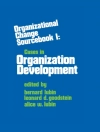How to Become a More Effective CBT Therapist explores
effective ways for therapists to move beyond competence to
‘metacompetence’, remaining true to the core principles
of CBT while adapting therapeutic techniques to address the
everyday challenges of real-world clinical work. This innovative
text explores how to:
* Work most effectively with fundamental therapeutic factors such
as the working alliance and diversity;
* Tackle complexities such as co-morbidity, interpersonal
dynamics and lack of progress in therapy;
* Adapt CBT when working with older people, individuals with
long-term conditions (LTCs), intellectual disabilities, personality
disorders and psychosis;
* Develop as a therapist through feedback, supervision,
self-practice and training.
表中的内容
About the Editors ix
About the Contributors x
Foreword by David M. Clark xv
Foreword by Tony Roth xvii
I The Foundations 1
1 Mastering Metacompetence: The Science and Art of Cognitive
Behavioural Therapy 3
Adrian Whittington and Nick Grey
2 The Central Pillars of CBT 17
David Westbrook
3 Developing and Maintaining a Working Alliance in CBT 31
Helen Kennerley
4 Working with Diversity in CBT 44
Sharif El-Leithy
II Handling Complexity 63
5 Working with Co-Morbid Depression and Anxiety Disorders: A
Multiple Diagnostic Approach 65
Adrian Whittington
6 Collaborative Case Conceptualization: Three Principles and
Five Steps for Working with Complex Cases 83
Robert Kidney and Willem Kuyken
7 Transdiagnostic Approaches for Anxiety Disorders 104
Freda Mc Manus and Roz Shafran
8 When and How to Talk about the Past in CBT 120
Gillian Butler
9 ‘Is it Them or is it Me?’ Transference and
Countertransference in CBT 132
Stirling Moorey
10 What To Do When CBT Isn’t Working? 146
Michael Worrell
III Adapting for Specific Client Groups 161
11 CBT with People with Long-Term Medical Conditions 163
Jane Hutton, Myra S. Hunter, Stephanie Jarrett and Nicole de
Zoysa
12 CBT with People with Personality Disorders 178
Kate M. Davidson
13 CBT with People with Psychosis 191
Louise Johns, Suzanne Jolley, Nadine Keen and Emmanuelle
Peters
14 CBT with Older People 208
Steve Boddington
15 CBT with People with Intellectual Disabilities 225
Biza Stenfert Kroese
IV Mastering Metacompetence 239
16 Using Self-Practice and Self-Reflection (SP/SR) to Enhance
CBT Competence and Metacompetence 241
Richard Thwaites, James Bennett-Levy, Melanie Davis and Anna
Chaddock
17 Using Outcome Measures and Feedback to Enhance Therapy and
Empower Patients 255
Sheena Liness
18 Making CBT Supervision More Effective 269
Nick Grey, Alicia Deale, Suzanne Byrne and Sheena Liness
19 Take Control of your Training for Competence and
Metacompetence 284
Adrian Whittington
An Afterword about Therapist Style 300
Simon Darnley and Nick Grey
Index 306
关于作者
Adrian Whittington is Director of Education and Training at Sussex Partnership NHS Foundation Trust. A Consultant Clinical Psychologist, Adrian is passionate about enabling wider access to evidence-based psychological therapies. Adrian was a director of postgraduate training programmes in CBT before taking up his current role. He works clinically with people with anxiety disorders and depression, particularly following trauma, and teaches on the postgraduate CBT training programme at the University of Sussex, UK.
Nick Grey is Joint Clinical Director and Consultant Clinical Psychologist at the Centre for Anxiety Disorders and Trauma (CADAT), South London and Maudsley NHS Foundation Trust, King’s Health Partners. He is actively involved in disseminating cognitive behavioural therapies, trying to ensure that the most effective treatments are applied in routine care. A BABCP-accredited practitioner, supervisor and trainer, Nick is also Honorary Lecturer at the Institute of Psychiatry and editor of A Casebook of Cognitive Therapy for Traumatic Stress Reactions (2009).












